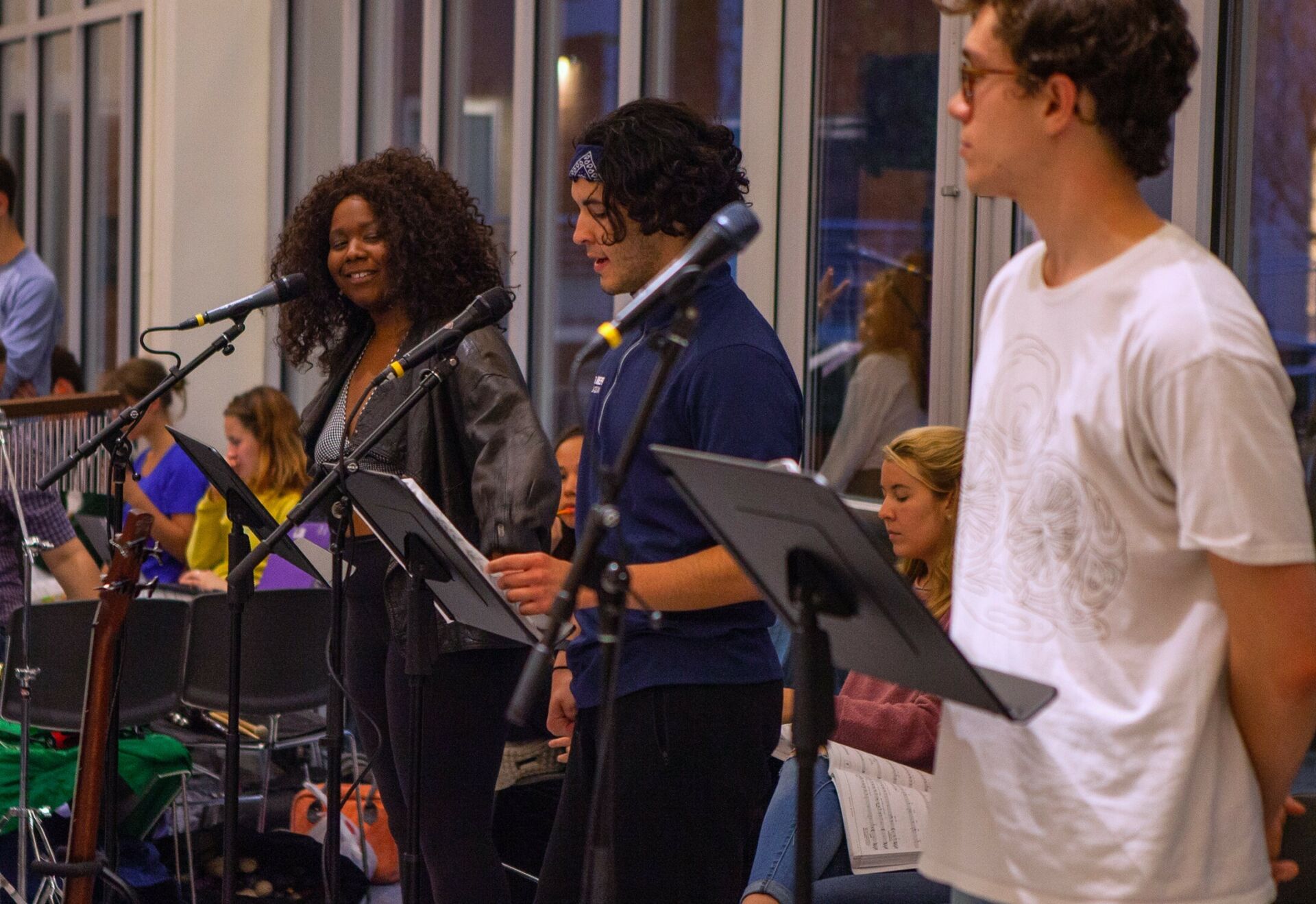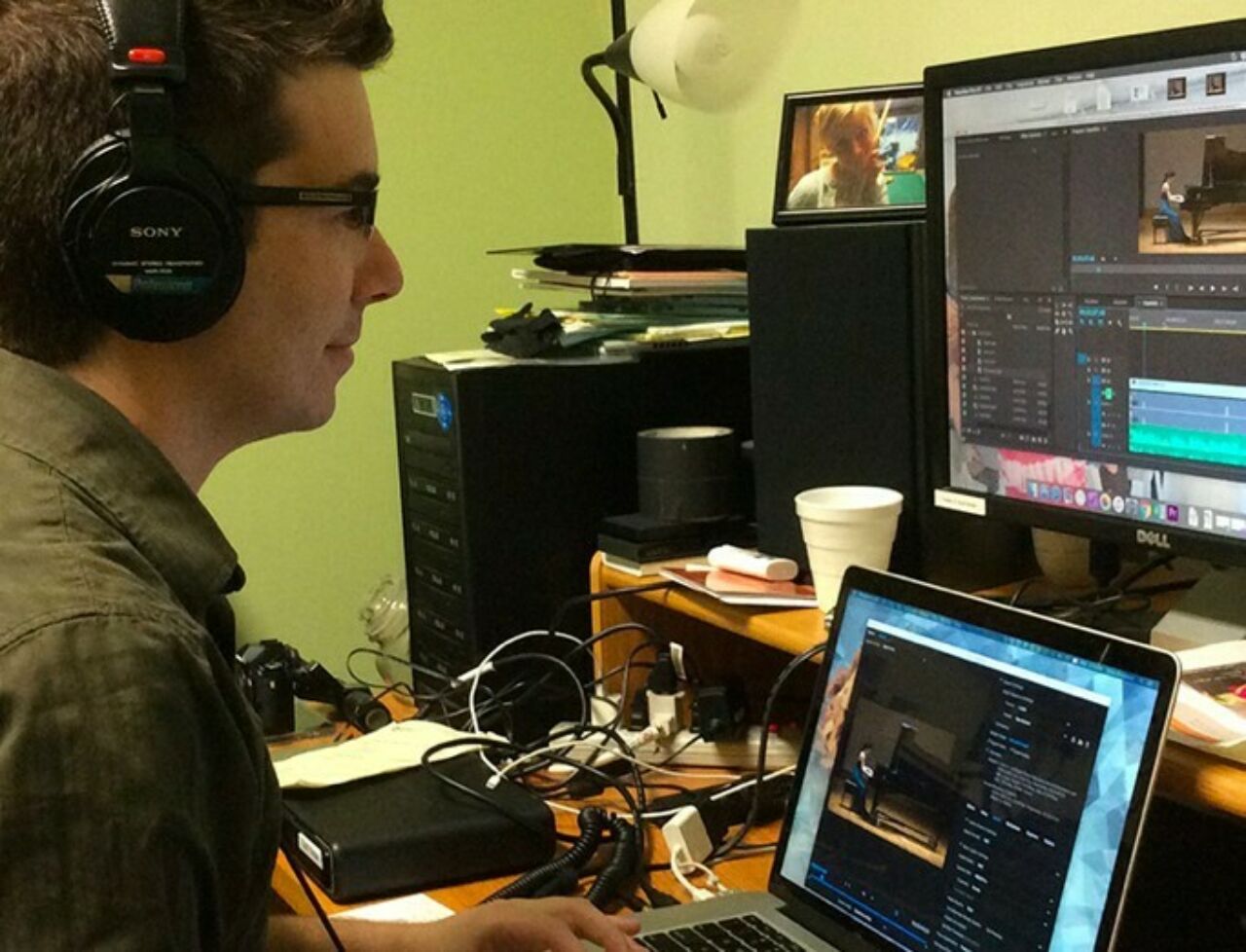
Music Technology, Minor
Music Technology Minor
Better recordings, production, and acoustics through technology
Develop skills applying technology to music production and performance. Become an acoustic consultant, audio/sound engineer, recording engineer, mixer, music editor, or sound designer. The Music Technology minor is the place to start.

Engineer your future with a Music Tech minor!
Administered by faculty from the College of Arts and Architecture’s School of Music, School of Theatre, and Department of Integrative Arts, the minor in Music Technology is appropriate for undergraduate students seeking to apply domains of knowledge from their majors or general education programs to the fields of audio production and digital technology in music.
The program, which is part of the Music Technology–ROARS Studio, consists of prescribed foundation courses in musical acoustics, digital audio, sound design, and audio recording. Supporting course work will enable you to focus in advanced topics such as music software programming, multi-media, or entertainment systems.
Does this sound like you?
- You are interested in recording, sound production, and acoustics and have a background in music and computer software.
- You’re majoring in music, theatre sound design, integrative arts, film production, information science and technology, or computer science (although the Music Tech minor is open to all majors).
If so, Music Technology sounds perfect for you.
Application Details
Application to the Music Technology Minor
Students wishing to complete the Music Technology minor should complete the following process:
- Schedule or complete INART 50 and INART 258A with a grade of C or higher (MUSIC 8 can be waived for students who demonstrate experience with music theory and/or performance).
- Request to add the minor in Lionpath. From your Lionpath home base, go to the Planning & Degree Progress menu and choose Update Academics. You can then click "Add a minor" and choose Music Technology. (You will need to follow the prompts to confirm and submit multiple times.) The College of Arts and Architecture will verify your enrollment in INART 50 and 258A and approve your request within a few days.
- THEA 484 is offered every semester, and THEA 285 is offered in spring semesters only. Once you have declared the minor in Lionpath, you should be able to self-enroll in these courses.
Questions about course enrollment may be sent to A&A Advisor Margaret Higgins at mah68@psu.edu.
Supporting Courses
Below is a list of preapproved supporting courses, but any course in the university that meets the spirit of this requirement in the judgment of the Committee may be used to satisfy this requirement. Some courses have prerequisites; students should consult the instructors to ensure that they meet eligibility requirements before planning their courses.
